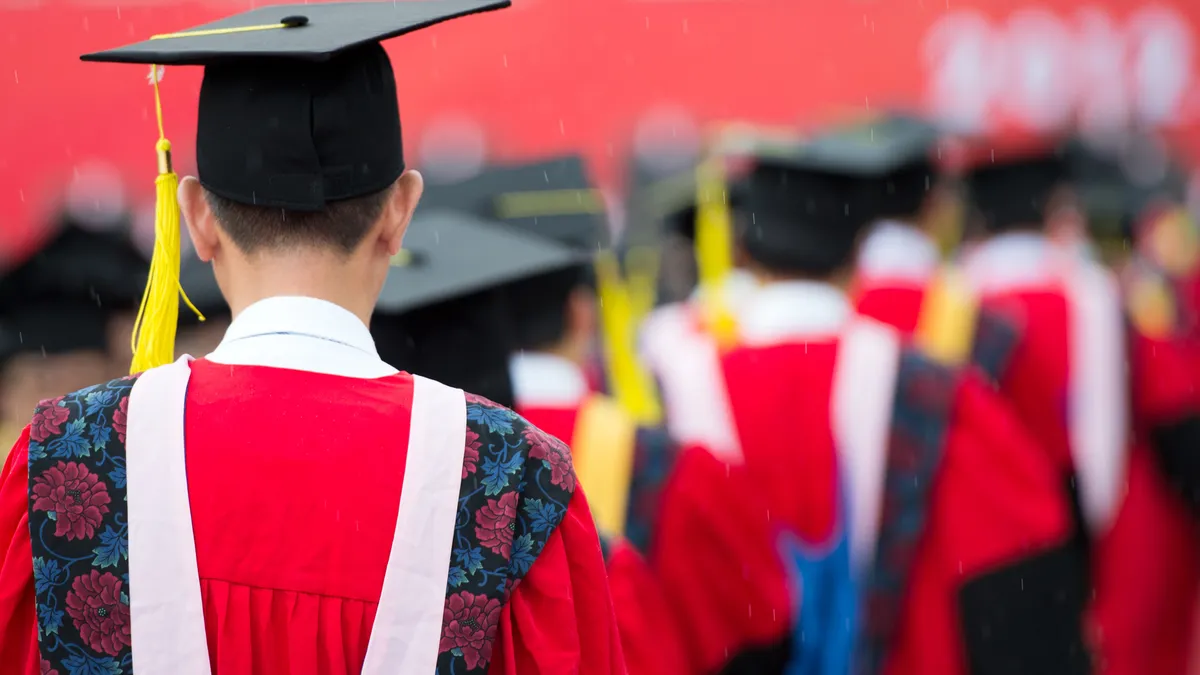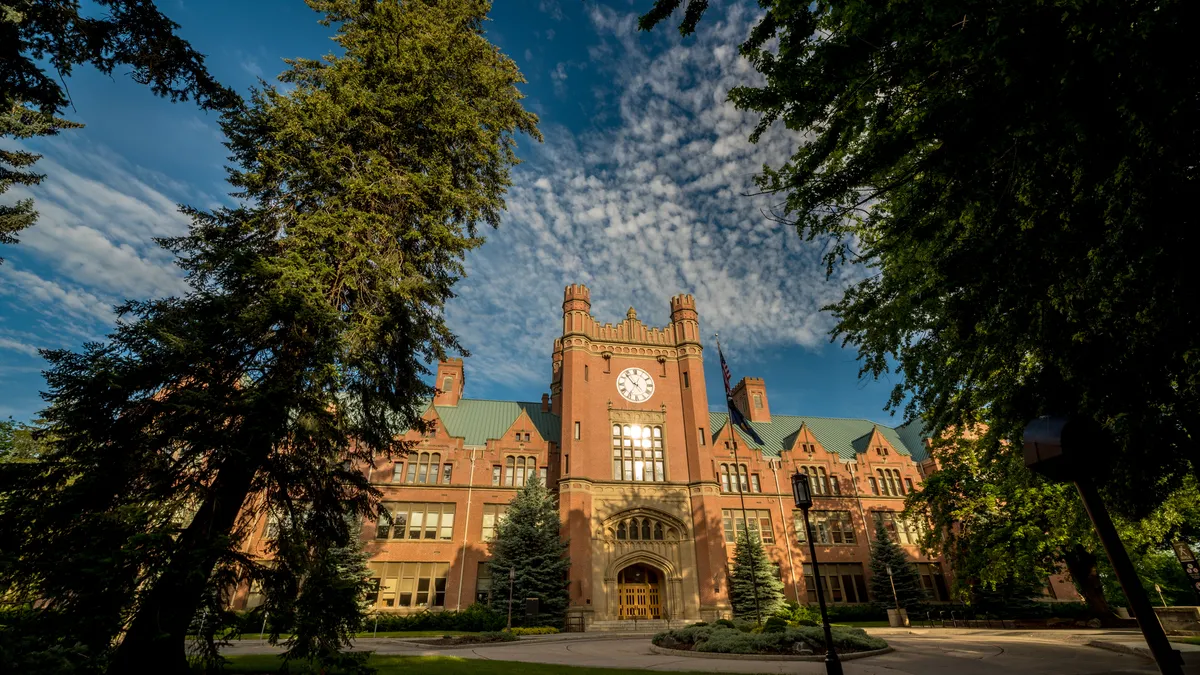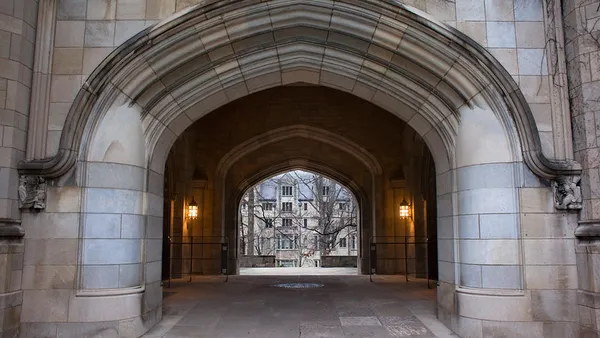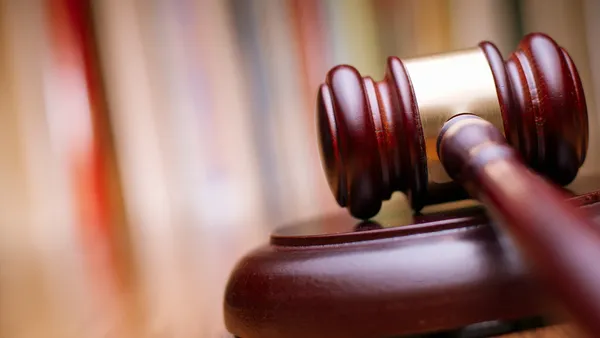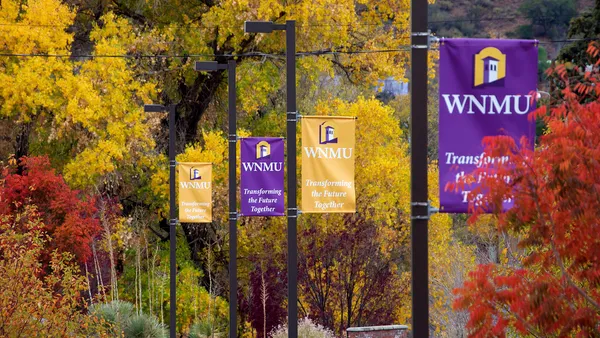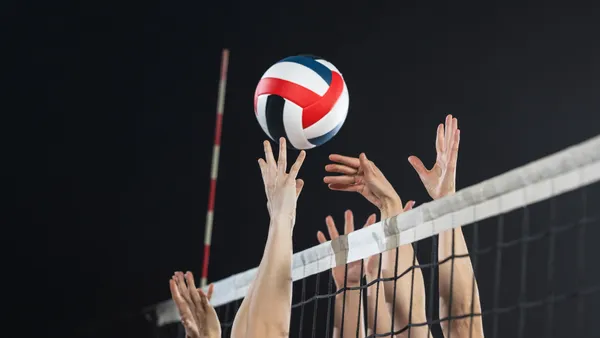Dive Brief:
- Three-quarters of college and university board members believe the public has a positive view of higher education, according to a new report from the Association of Governing Boards of Universities and Colleges (AGB) and Gallup. Those who believe the public feels negatively said media coverage of college costs and student debt and perceptions of left-leaning bias were factors.
- According to the annual Trustee Index, 74% of trustees are very or somewhat concerned about higher education over the next decade, though a smaller share (49%) were concerned about their institution. They listed financial stability (27%), affordability (25%) and enrollment (20%) as the biggest issues facing their institutions.
- The majority of trustees believe governing board members should be advocates for their colleges, but relatively few in the last year contacted Congress members (25%), community leaders (34%) or local business leaders (34%) about a higher education issue.
Dive Insight:
The Index was released as part of The Guardians Initiative, an effort by AGB that aims to engage board members in making the case for higher education's value. The initiative highlights the ways graduates benefit the economy and tax base, such as through becoming lifelong learners and driving innovation and entrepreneurship.
Yet public confidence in higher education continues to wane, according to a recent Gallup poll showing just 48% of responding U.S. adults had "a great deal" or "quite a lot" of confidence in colleges and universities. That's down from 57% who said so in 2015.
Those results call attention to another one of the board members' concerns in the AGB report: a perception among Republicans and conservatives of a growing liberal political bias across higher education. The Gallup poll showed Republicans' confidence in higher education fell 17% since 2015 while Democrats' only dropped by 6% and Independents by 4%. Another recent survey indicated that while about two-thirds of adults view higher education favorably, more than three-quarters said its institutions have a liberal bias.
Business leaders, meanwhile, have a greater degree of confidence in U.S. higher education than the general public does, according to a survey earlier this year from the Association of American Colleges and Universities (AAC&U). About 63% of executives and hiring managers they had "quite a lot" or "a great deal" of confidence in higher education, and even more said it was worth the time and money. However, many employers felt that while graduates were ready for entry-level jobs, they struggled to advance beyond that.
"I've talked to a lot of employers who say students come in eager, they're prepared, they can tackle the job head-on, but then after six months they want to be promoted or the work becomes tiresome," AAC&U President Lynn Pasquerella told Education Dive. "Those dispositions are things we can help engender in students — to be in there for the long haul, to accept challenges, to understand the complexity of organizations and what it takes to advance to the next level."


